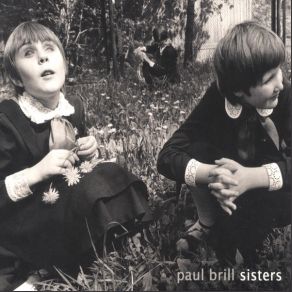Sisters LP
Download links and information about Sisters LP by Paul Brill. This album was released in 2003 and it belongs to New Age, Rock, Indie Rock, Country, Alternative Country, Pop, Alternative, Songwriter/Lyricist genres. It contains 11 tracks with total duration of 44:20 minutes.

|
|
|---|---|
| Artist: | Paul Brill |
| Release date: | 2003 |
| Genre: | New Age, Rock, Indie Rock, Country, Alternative Country, Pop, Alternative, Songwriter/Lyricist |
| Tracks: | 11 |
| Duration: | 44:20 |
| Buy it NOW at: | |
| Buy on iTunes $9.99 | |
| Buy on Songswave €1.25 | |
Tracks
[Edit]| No. | Title | Length |
|---|---|---|
| 1. | Begin at the End | 3:14 |
| 2. | Barefoot in the Snow | 3:23 |
| 3. | Macon | 4:07 |
| 4. | Skylight | 3:21 |
| 5. | Favorite Thing | 4:42 |
| 6. | Spit and Spite | 4:37 |
| 7. | Westering | 3:04 |
| 8. | For the Sake of Marjorie Ruth | 3:47 |
| 9. | Blue Blanket | 4:46 |
| 10. | Something to Get Along | 4:54 |
| 11. | Two Stars | 4:25 |
Details
[Edit]Paul Brill's second long-player leans more into chamber pop than his debut, Halve the Light, and while his nods to alt-country are fewer, they occasionally tumble out over beds of strings, horns, accordions, and inventive percussion. Opening with the aggressive caper, "Begin at the End," a fiddle erupts over an alternating bass, foot-stomps, and handclaps (or are they knee-slaps?) to foreshadow the dark intensity consistently revisited through the 11-track adventure. Tracks like "Barefoot in the Snow," "Favorite Thing," and "Westering" provide a platform for Brill's considerable pop awareness comparable to the likes of Michael Penn, Neil Finn, or even an acoustic Built to Spill. That is not to say Brill evokes identical characteristics as these artists. His vision merely flirts with similar melodic construction while maintaining an ambitiousness and confidence very much his own. Lyrically, Brill cleverly pours out imagery in tightly wound phrases, ardent and, at times, disturbing phrases that, like the musical nature of Sisters, seem toiled over and placed very carefully into a specific order for perfect consumption. Brill has pulled this off remarkably well; the production, instead of feeling overworked, is uninhibited and vigorous, and the subtlety of the arrangements unfolds with subsequent listening, proving the steadfast attention to detail that went into the creation of the encompassing ambience was a successfully clever venture.